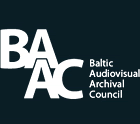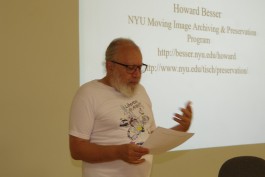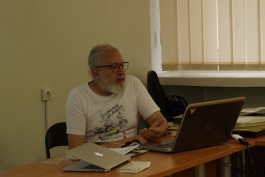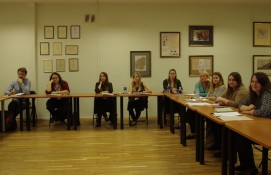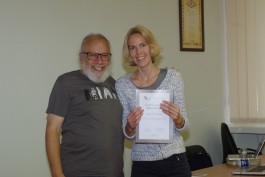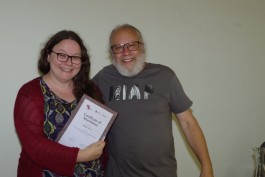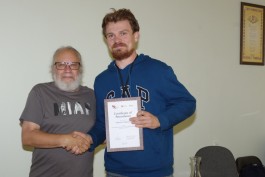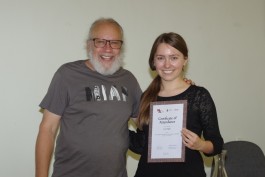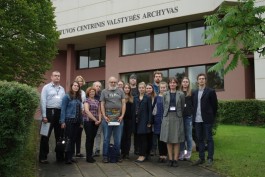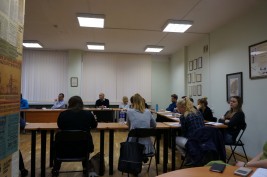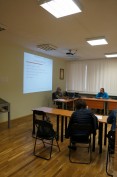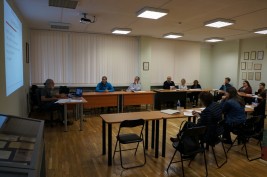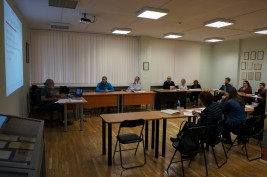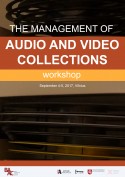The management of audio and video collections workshop

September 2017, Vilnius
Today audiovisual documents amount to a large part of world memory and are found in many different memory institutions (libraries, museums, archives). A lot of those institutions by their nature are not directly related to the preservation and management of audiovisual heritage. So they often face various problems and a lack of experience, while trying to preserve audiovisual heritage in their collections as well as giving access to it.
Seeking to give opportunities for memory institutions’ specialists to get acquainted with actual questions of handling, preserving, digitizing and giving access to audio and video collections, Lithuanian Central State Archive together with the Baltic Audiovisual Archival Council (BAAC) and Archivists’ Association organized the international workshop “The Management of Audio and Video Collections”. The workshop took place on September 4-5, 2017 and was hosted by Lithuanian Central State Archive. Specialists from Lithuanian, Latvian, Estonian and Ukrainian archives, libraries and museums participated in the workshop. This was led by well-known specialist Professor Howard Besser.
Howard Besser is professor of film studies at New York University (NYU), where he leads the Master degree program of Moving Image Archiving and Preservation. He is also interested in image databases, digital libraries, and metadata standards. Howard Besser publishes articles, takes part in conferences, and organizes workshops for memory institution specialists.
Participants of the workshop were introduced to various analog formats of sound and video documents, the peculiarities of cataloguing, handling and storing, the main threats for the safeguarding of the collections. Professor Besser paid a lot of attention to the processes of aging and obsolescence of physical carriers, emphasizing the importance of regular control of physical condition, long-time preservation and risk assessment. During the workshop, the actual questions concerning digitization and digital preservation were discussed. The lecturer gave a lot of useful practical recommendations, how to digitize, what formats and equipment should be used, how to manage and preserve digital audiovisual content. One more important topic of the workshop was the access to digitized audio and video collections: different access formats, providing metadata and copyright issues.
At the end of the workshop, participants were asked to evaluate the programme, themes, and relevance of the workshop. Summarizing the responses, it is a pleasure to mention that the workshop was very useful, with actual and important themes. Participants also expressed a desire to attend future workshops concerning the preservation of audiovisual heritage.
The international workshop “The Management of Audio and Video Collections” was organized implementing the project of the same name. The project was partially financed by the Lithuanian Culture Council and Ministry of Culture of the Lithuanian Republic. The main goals of the project were, to introduce specialists from memory institutions to actual and practical decisions and practices concerning handling, preservation and access to analog and digital audio and video collections; to contribute to the safeguarding of Lithuanian analog and digital audiovisual heritage; to strengthen relations among the international community of audiovisual heritage specialists, while making it possible to share experiences. According to the workshop’s organizers, all tasks of the project were successfully fulfilled.
Organizers:
 |
 |
 |
Workshop sponsored by Lithuanian Culture Council and the Ministry of Culture of Lithuanian Republic
 |
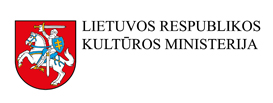 |
